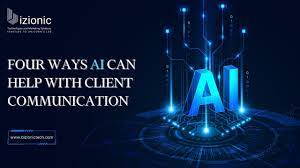Introduction:
Education is a cornerstone of human development, a dynamic process that empowers individuals, enriches societies, and shapes the trajectory of nations. Beyond the acquisition of knowledge, education is a transformative force that opens doors to opportunities, fosters critical thinking, and cultivates skills necessary for personal and societal https://kristenyusuf.ac.id/. In this article, we will delve into the multifaceted dimensions of education, exploring its significance, challenges, and the evolving landscape in the 21st century.
The Significance of Education:
- Empowerment and Liberation:
- Education serves as a catalyst for empowerment, offering individuals the tools to break free from the shackles of ignorance and socio-economic constraints. It is a pathway to liberation, enabling people to make informed choices about their lives.
- Economic Prosperity:
- A well-educated population is a driving force behind economic prosperity. Education equips individuals with the skills demanded by a rapidly evolving job market, fostering innovation and contributing to economic growth.
- Social Cohesion and Tolerance:
- Education is a unifying force that promotes social cohesion and tolerance. Exposure to diverse perspectives and cultures fosters understanding, empathy, and the ability to navigate a globalized world.
The Challenges in Education:
- Access and Inequality:
- Disparities in access to quality education persist globally. Economic, geographical, and gender-based factors contribute to inequality, hindering the realization of education as a universal right.
- Technological Divide:
- The digital age has ushered in unprecedented opportunities, but a technological divide exists. Not all students have equal access to digital resources and online learning, exacerbating educational disparities.
- Relevance of Curriculum:
- As the world evolves, the relevance of educational curricula comes under scrutiny. There is a growing need for curricula that incorporate critical thinking, problem-solving, and skills relevant to the rapidly changing demands of the 21st-century workforce.
The Evolving Landscape of Education:
- Technology Integration:
- Technology has revolutionized education, offering new avenues for learning. Online courses, virtual classrooms, and interactive educational tools provide flexibility and accessibility, bridging gaps in traditional education.
- Lifelong Learning:
- The concept of lifelong learning is gaining prominence. Continuous skill development and learning throughout one’s life are essential to adapting to a dynamic and ever-changing professional landscape.
- Global Collaboration:
- The interconnected nature of the world calls for global collaboration in education. International partnerships, exchange programs, and collaborative research initiatives contribute to a more comprehensive and inclusive educational experience.
Conclusion:
Education is a powerful force that transcends borders and generations. Its impact extends far beyond the classroom, shaping the future of individuals and societies. While challenges persist, the evolving landscape of education offers opportunities for innovation and inclusivity. As we navigate the complexities of the 21st century, it is imperative to recognize education as a fundamental right and a cornerstone for building a more equitable, prosperous, and enlightened world.



